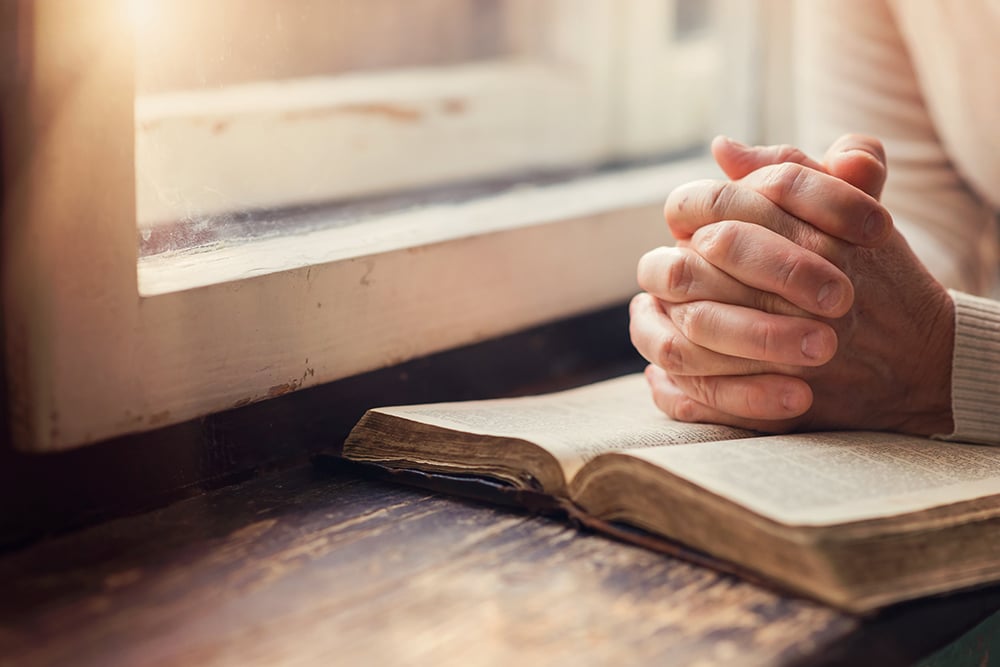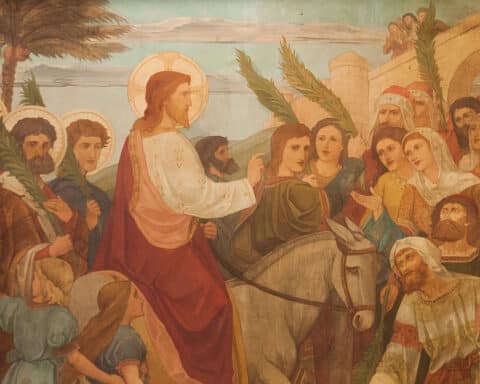
— Name withheld, Detroit
Answer: Reading the Bible is, of course, to be encouraged. The problem is interpreting. If, in the past, priests once encouraged the faithful to be cautious in reading the Bible, it was only to protect them from the Protestant tendency of private interpretation, which leads to a lot of divisions. That priests ever did discourage the faithful from reading the Bible is exaggerated in terms of its extent and severity.
However, any such warnings ought to be seen in the light of what private interpretation has wrought — namely, countless denominations of Protestants all claiming biblical authority for their differing views.
Today, Catholics are strongly encouraged to read and pray with their Bible and to strive to conform their understanding of the text to Church teaching and norms of Catholic biblical interpretation articulated in the Catechism.
Ancestors of Jesus
Question: Why does Matthew in his Gospel list the ancestors of Jesus when they are really those of his foster father, Joseph, with whom he shares no genes?
— Salvatore Leone, Tampa, Florida
Answer: The purpose of a genealogy for ancient Jews was more complex and rich than to simply demonstrate physical descent. The modern science of genetics, chromosomes and the genetic code was unknown in the ancient world.
But even among us moderns, relationships are set up both by blood and by marriage. That is to say, two people can be related either by direct physical descent or “legally” through the marriage of themselves or others in their family. And thus, while Joseph and Jesus shared no physical genes, Joseph’s family and Jesus are one through Joseph’s marriage to Mary. So Joseph’s family tree matters to us and those in ancient Israel because, through Joseph and his marriage to Mary, Jesus relates to many others in Israel.
In ancient Israel, genealogies existed to show that one was, in fact, a member of the nation of Israel. They located them in a particular tribe and also to show their relationships with others.
These are Matthew’s main purposes — namely, that Jesus belongs to the family of Israel both as a son of Mary and through his relationship to her husband, Joseph.
Cohabitation before marriage
Question: With premarital sex and cohabitation so common, what is a priest to do when preparing these couples for matrimony?
— Name withheld, Boston
Answer: As you rightly point out, fornication (premarital sex) is a very serious sin, which has sadly received widespread acceptance in our culture. The related sin and trend of cohabitation make matters even worse because of its public nature and capacity to give scandal. Scripture in many places describes the sin of fornication as a mortal sin, declaring that it excludes one from the kingdom of heaven (cf. Eph 5:5, 1 Cor 6:9, Gal 5:21, among others).
What, then, is a priest to do when he prepares couples for marriage who are cohabiting? Of course, there are many prudential factors involved. At least the couple is trying to set things right. Having them seek separate domiciles is best but not always feasible. But surely, every priest ought to teach such couples of the seriousness of their sin and insist they live chastely and sleep in separate rooms. While he cannot enforce this, he ought to instill in them a holy reverence for God who sees all things.
To avoid a scandal that is easily given by cohabiters who cannot separate, many priests make some mention at the wedding of the fact that he instructed the couple to live chastely and was glad that they were willing to give heed to the holy instruction of God. He can be discrete but clear and even use a little humor. But simply ignoring the issue altogether when a couple has publicly cohabited offends against the common good by giving the impression that such behavior is good or no big deal. Silent pulpits are a sadly common source of scandal.
Msgr. Charles Pope is the pastor of Holy Comforter-St. Cyprian in Washington, D.C., and writes for the Archdiocese of Washington, D.C. at blog.adw.org. Send questions to msgrpope@osv.com.





